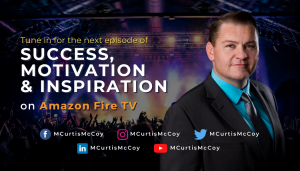The role of forgiveness is one of the most powerful and misunderstood tools in the healing journey. The role of forgiveness is enormous in the aspect of our mind, body, and spirit. For women who have endured emotional, verbal, or physical abuse, or have experienced significant life transitions like divorce, forgiveness may seem like an insurmountable task. How can one let go of anger, pain, or betrayal without feeling like they’re letting someone “off the hook”? The answer lies in understanding forgiveness for what it truly is—and what it is not.
Forgiveness is not about excusing harmful behavior, nor is it about reconciling with someone who doesn’t deserve your trust. Instead, forgiveness is about reclaiming your peace and releasing the power that anger or resentment holds over you. In this article, we’ll explore forgiveness in depth, including its role in healing, its psychological benefits, and practical steps to cultivate it in your life.
What Forgiveness Is
Forgiveness is a conscious decision to release feelings of resentment or vengeance toward someone who has wronged you. It’s important to note that forgiveness doesn’t depend on the other person acknowledging their actions or even asking for forgiveness. Instead, it’s a deeply personal act that prioritizes your emotional freedom and mental clarity.
At its heart, forgiveness is about empowerment. When you forgive, you’re saying, “I choose not to let this hurt define me or control my life anymore.” Forgiveness allows you to reclaim your narrative and move forward without the weight of unresolved anger or bitterness holding you back.
Examples of Forgiveness
Imagine someone who endured years of emotional abuse in a toxic relationship. Forgiveness in this case doesn’t mean erasing the memories or reconciling with the abuser. Instead, it means releasing the emotional grip the abuser’s actions have on the survivor, so they can find peace and focus on their healing journey.
Forgiveness is not an act of weakness—it’s an act of profound strength. It’s a declaration that your emotional well-being matters more than holding onto resentment.
What Forgiveness Is Not
Because forgiveness is often misunderstood, it’s essential to clarify what it does not entail:
- Forgiveness Is Not Condoning or Excusing Harmful Behavior
Forgiving someone does not mean you’re saying their actions were okay. Harmful behavior remains wrong, and forgiveness doesn’t absolve the offender of accountability. - Forgiveness Is Not Forgetting
The idea of “forgive and forget” is misleading. Forgiveness doesn’t require you to erase the memory of what happened. Instead, it allows you to remember without being consumed by the pain. - Forgiveness Is Not Reconciliation
Reconciliation requires mutual trust and accountability, and it’s not always possible or safe. You can forgive someone without ever speaking to them again. Forgiveness is about your peace, not the restoration of a relationship. - Forgiveness Is Not a Quick Fix
Forgiveness is a process that takes time and effort. It’s okay if it doesn’t happen overnight. What matters is your commitment to working toward it, step by step.
The Psychological Benefits of Forgiveness
Letting go of resentment and anger has profound benefits for your mental and emotional health. Numerous studies highlight the transformative effects of forgiveness:
1. Reduced Stress and Anxiety
Harboring anger or bitterness keeps your body in a state of heightened stress, which can take a toll on your physical health. Forgiveness helps lower stress hormones like cortisol, promoting relaxation and emotional balance.
2. Improved Mental Health
Forgiveness has been linked to lower rates of depression and anxiety. By releasing resentment, you free up mental space for positive emotions like peace, joy, and gratitude.
3. Greater Resilience
When you forgive, you develop emotional strength and resilience. Forgiveness helps you move past pain and focus on personal growth, even in the face of adversity.
4. Enhanced Relationships
While forgiveness doesn’t always lead to reconciliation, it can improve your interactions with others. By letting go of resentment, you’re better able to build healthy, trusting relationships moving forward.
Steps to Cultivate Forgiveness
Forgiveness is not always easy, especially when the wounds are deep. However, it is possible with intentional effort. Here are practical steps to help you cultivate forgiveness:
Step 1: Acknowledge the Hurt
The first step toward forgiveness is recognizing and validating your feelings. Don’t suppress your emotions or downplay the impact of what happened. It’s okay to feel hurt, angry, or betrayed. Naming your emotions is an important part of the healing process.
Step 2: Understand Forgiveness as a Gift to Yourself
Forgiveness is not about the other person—it’s about you. By forgiving, you’re giving yourself the gift of freedom from the emotional burden of anger and resentment. Remind yourself that forgiveness is an act of self-love.
Step 3: Reframe the Narrative
Instead of focusing solely on the harm done, try to find a way to reframe the experience. Ask yourself:
- What have I learned from this situation?
- How have I grown as a result of this experience?
Reframing doesn’t minimize the pain but helps you focus on personal growth and resilience.
Step 4: Release Anger in Healthy Ways
Holding onto anger only harms you. Find constructive outlets to release it, such as:
- Journaling your feelings.
- Talking to a trusted friend or therapist.
- Engaging in mindfulness practices like meditation or yoga.
Step 5: Set Boundaries to Protect Your Peace
Forgiveness doesn’t mean allowing harmful behavior to continue. Set clear boundaries to ensure your emotional and physical safety moving forward. Boundaries are an act of self-respect and self-protection.
Forgiveness as an Ongoing Process
Forgiveness is rarely a one-time decision—it’s an ongoing journey. You may find that old wounds resurface, especially when you’re triggered by certain situations or memories. That’s okay. Forgiveness doesn’t mean you’ll never feel hurt again; it means you’re committed to continually choosing peace over resentment.
Tips for Navigating Setbacks
- Practice self-compassion when old feelings arise.
- Remind yourself of the progress you’ve made.
- Return to the tools and practices that helped you forgive in the first place.
Healing isn’t linear, and that’s perfectly normal. Be patient with yourself as you move through this process.
Forgiveness and Self-Compassion
While forgiving others is essential, self-forgiveness is equally important. Many women carry guilt or shame for mistakes they’ve made in the past, whether it’s staying in an unhealthy relationship for too long or not speaking up for themselves when they should have.
Why Self-Forgiveness Matters
Self-forgiveness allows you to release the burden of guilt and see yourself with compassion. It’s not about excusing your actions but about learning from them and committing to doing better in the future.
How to Practice Self-Forgiveness
- Acknowledge Your Humanity: Everyone makes mistakes. Give yourself the grace to be imperfect.
- Take Responsibility: Accept accountability for your actions, but don’t dwell on self-blame.
- Learn and Grow: Focus on what the experience taught you and how you can use it to grow.
- Practice Self-Compassion: Speak to yourself with kindness and understanding, as you would to a close friend.
When you forgive yourself, you open the door to deeper healing and self-acceptance.
Conclusion
Forgiveness is not about letting someone off the hook for their actions—it’s about freeing yourself from the grip of anger and pain. It’s a powerful tool for emotional healing, allowing you to reclaim your peace and move forward with strength and clarity.
Remember, forgiveness is a process, not a destination. It takes time, effort, and self-compassion, but the rewards are worth it. You create space for joy, resilience, and personal growth by forgiving others and yourself.
As you embark on your journey of forgiveness, take it one step at a time. Celebrate your progress, no matter how small, and trust that healing is within your reach. You are worth the peace and freedom that forgiveness brings.




